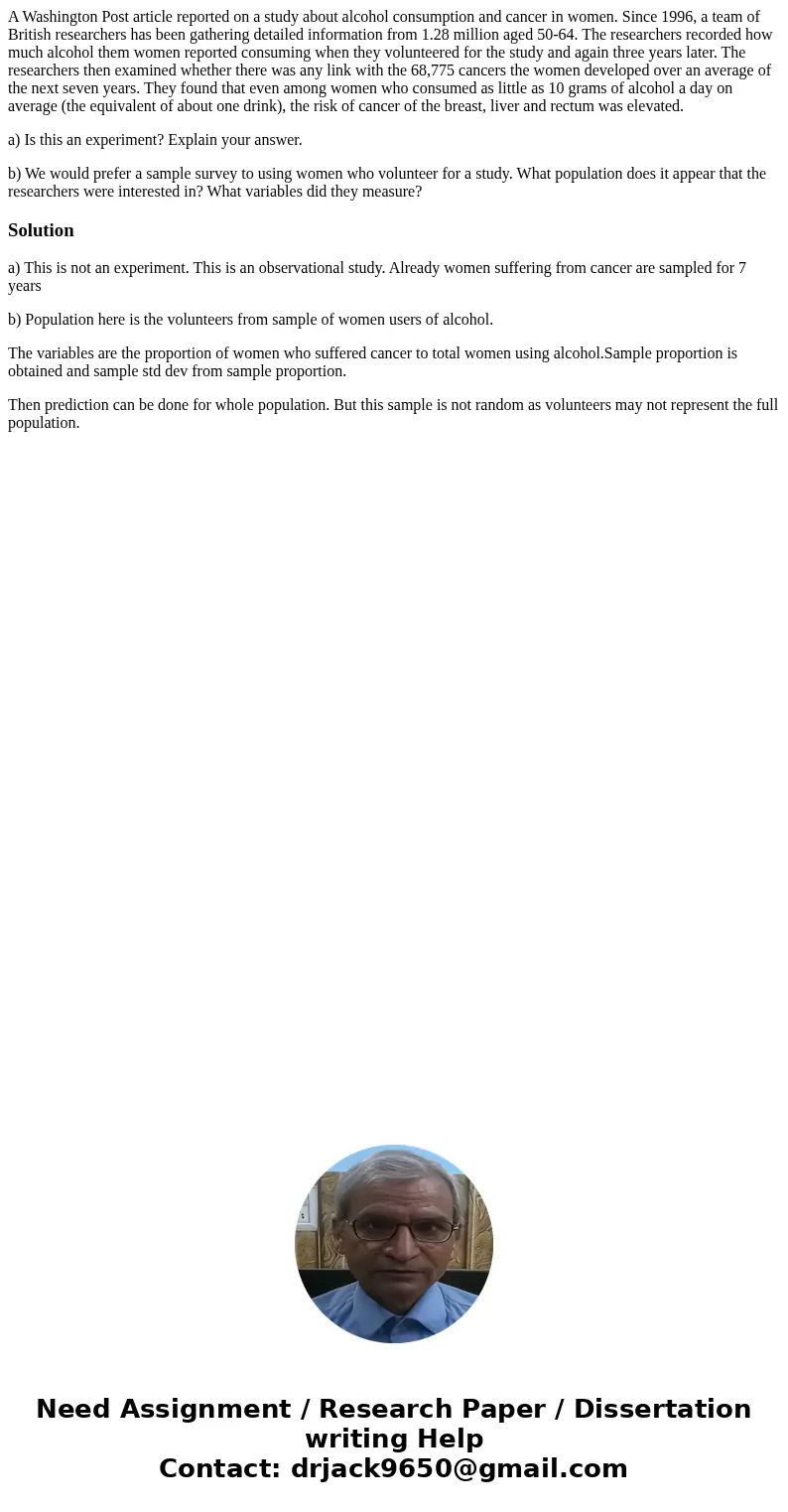A Washington Post article reported on a study about alcohol
A Washington Post article reported on a study about alcohol consumption and cancer in women. Since 1996, a team of British researchers has been gathering detailed information from 1.28 million aged 50-64. The researchers recorded how much alcohol them women reported consuming when they volunteered for the study and again three years later. The researchers then examined whether there was any link with the 68,775 cancers the women developed over an average of the next seven years. They found that even among women who consumed as little as 10 grams of alcohol a day on average (the equivalent of about one drink), the risk of cancer of the breast, liver and rectum was elevated.
a) Is this an experiment? Explain your answer.
b) We would prefer a sample survey to using women who volunteer for a study. What population does it appear that the researchers were interested in? What variables did they measure?
Solution
a) This is not an experiment. This is an observational study. Already women suffering from cancer are sampled for 7 years
b) Population here is the volunteers from sample of women users of alcohol.
The variables are the proportion of women who suffered cancer to total women using alcohol.Sample proportion is obtained and sample std dev from sample proportion.
Then prediction can be done for whole population. But this sample is not random as volunteers may not represent the full population.

 Homework Sourse
Homework Sourse